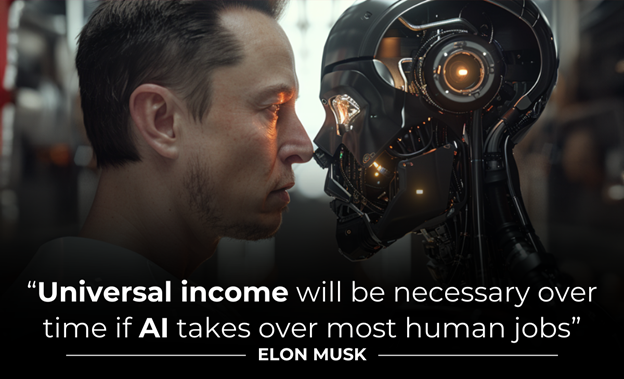
Astronauts out in space must perform a variety of technological functions as well as navigational endeavors. They need to be in their right minds, but sometimes the bon voyage isn’t all that bon…
By Egon E. Mosum
Those brave astronauts in the various space programs undergo significant physical and psychological testing and conditioning; they must.
Once they get out into the wild black yonder of space, they face extraordinary danger, extended time packed in a small craft with others, weightlessness, radiation, and other stressors.
They have been chosen for their resilience, their strength and endurance as it relates to space travel, but sometimes even the best machines break down.
While the delusional who believe in the law of attraction think that the universe is in tune with us, is our friend, those who engage in space travel know the reality — the universe has a whole menu of choices in how it can kill, sicken, or drive a man mad who dares to venture into it.
In space, no one can hear you scream we are told in the movie Alien.
That however does not negate the possibility that you will be screaming.
Astronauts out in space must perform a variety of technological functions as well as navigational endeavors. They need to be in their right minds, but sometimes the bon voyage isn’t all that bon.
Space travelers can develop problems, ‘specifically, symptoms of emotional dysregulation, cognitive dysfunction, disruption of sleep-wake rhythms, visual phenomena and significant changes in body weight, along with morphological brain changes, are some of the most frequently reported occurrences during space missions.’
Some of those changes referenced above can cause illusions and hallucinations, which are definitely risk factors to the successful completion of a mission.[1]
There is perhaps no greater opportunity to feel alone, in the larger sense at least, than to be in outer space, away from your planet, your country, your home and your family. It can be, especially on an extended trip, a significant stressor.
One of today’s fastest-growing software companies might surprise you
🚨Heads up! It's not the publicly traded tech giant you might expect…
Meet $MODE, the disruptor turning phones into potential income generators. Investors are buzzing about the company's pre-IPO offering.*
📲Mode saw 32,481% revenue growth from 2019 to 2022, ranking them the #1 overall software company on Deloitte’s 2023 fastest-growing companies list.

They aim to pioneer "Privatized Universal Basic Income" powered by technology—not government. Their flagship product, EarnPhone, turns phones from an expense into an income stream, and they’ve already helped consumers earn & save $325M+.
Uber did it to taxis, Airbnb to hotels and now Mode Mobile is doing it to the $500 billion smartphone industry. The difference? You can still invest in their pre-IPO offering for a limited time.
50,000+ investors already participated in their previous sold out offering at 0.30/share and you can still claim your shares in this $1 trillion industry.
🔒 With their Nasdaq ticker $MODE secured, investors now have an opportunity to invest before they potentially go public but only a limited space remains in their current round.
🚀Invest in the biggest disruption to smartphones since the iPhone.
‘The prolonged isolation and confinement that astronauts face in space can increase risks of behavioral issues and psychiatric disorders, such as anxiety and depression.’[2]
Anxiety and depression besides potentially leading to long term negative physical effects, can lead to difficulties which might cause a space mission to fail, not due to technological malfunctions, but human mental ones.
Relationships with the other crew members may be negatively impacted.
Astronaut efficiency can be impacted, and in a scenario where certain things must be performed at certain precise times to support the mission, tardiness and procrastination can prove fatal to a space mission.[3]
Prolonged depression can cause physical changes in the brain of the astronaut—it can shrink it.
‘One of the most common changes seen in a depressed patient’s brain is shrinkage, especially in the hippocampus, thalamus, frontal cortex, and prefrontal cortex.’[4]
The hippocampus is involved with memory and spatial navigation; rather important to be in good shape for an astronaut. The thalamus plays a significant role in sleep, consciousness and alertness, among other functions.
The frontal cortex is responsible for higher level cognitive processes that are mission critical, planning, decision making and problem solving. The pre-frontal cortex, among other functions effects social relations, planning and the regulation of emotions.
One can imagine if all of these areas experienced the profound negative effects of shrinkage in gray matter volume on a space mission.
One need not imagine what can happen to an astronaut who has experienced all of the space stressors for a prolonged period, because we have an example in Lisa Nowak.
She graduated from the Naval Academy, had a degree in aeronautical engineering, and flew on the Space Shuttle. She also was charged with assault, burglary and attempted kidnapping involving another woman who was her rival for the attentions of a former lover.[5]
She received a year of probation and of course was tossed out of the space program.
Sometimes, it’s not the trip out into space that can make you crazy, it’s the return to earth, where things become both literally and figuratively mundane, when compared to the adventures of space exploration.
Buzz Aldrin, famous for being the second man on the moon, had a hard time after the glory moon days. He struggled with alcohol and depression. He went from pacing around on the moon, to walking the lot at a Cadillac dealership just a few years after receiving the Presidential Medal of Freedom.[6]
Now, we are thinking about sending men to Mars; a long and strange trip that will be. The increased time in space, the increased exposure to radiation, the increased likelihood of a one-way trip with a very hard landing all significantly ups the ante with respect to mental health risks for the astronauts.
‘A typical round trip to Mars will last about three years, meaning that astronauts will be confined to a small space with a group of people for an extremely long time, with no possibility to conduct real-time discussions with Earth teams, family and friends.’[7]
WHY YOU SHOULD CARE
Space programs are expensive, and much of the money comes from taxes which means much of the money comes from your pocket.
Many think that Moon trips and Mars trips and the like are just bright shiny objects to distract those of us on earth from the real problems we have, the real solutions we need, and how our tax money can be of more service to us on terra firma.
Do we need to spend billions of dollars so that a few astronauts can get a photo op on Mars, assuming they survive the trip, assuming they don’t go bat shit crazy during the long voyage and either kill each other or wreck the space capsule?
How have we socially benefitted from the space program?
Of course, there were technological innovations and benefits, but are our communities safer, our laws more just, our job opportunities better because nations have repeatedly sent a rather large reaction thrust phallic symbol out into space?
Did moon rocks cure cancer?
Assuming for the sake of argument, that we will be able to technologically achieve a manned mission to Mars, there is no way of knowing whether or not we can have humans who may physiologically and psychologically survive the mission—even one way.
We could find ourselves spending billions of dollars to launch a craft to Mars, only to have created a small rocket powered padded cell for a group of insane high-flying fruitcakes, made crazy because of the environment, the pressures, and the risks.
Obviously none of us want those with the ‘right stuff’ to turn into the wrong stuff, and obviously we should the realize that such an occurrence on a Mars mission, or any long duration space project could do just that—our tax dollars could fund the future insanity of our astronauts.
With extended extra-planetary missions, it might not be space that is the final frontier for our voyagers, but mental illness.
Sources:
[1] The Burden of Space Exploration on the Mental Health of Astronauts: A Narrative Review 10/21 CLINICAL NEUROPSYCHICATRY https://pmc.ncbi.nlm.nih.gov/articles/PMC8696290/
[2] Risk of Behavioral Conditions and Psychiatric Disorders NASA https://www.nasa.gov/reference/risk-of-behavioral-conditions-and-psychiatric-disorders/
[3] FIVE WAYS ANXIETY AFFECTS YOUR WORK PERFORMANCE 9/1/21 CAREY MEDICAL GROUP https://www.carymedicalgroup.com/blog/five-ways-anxiety-affects-your-work-performance/
[4] WHAT HAPPENS TO THE BRAIN DURING DEPRESSION https://transformationstreatment.center/treatment/what-happens-to-the-brain-during-depression/
[5] HOUSTON SHE’S GOT SOME PROBLEMS TIME, Kluger 2/8/07 https://time.com/archive/6596796/houston-shes-got-some-problems/
[6] BUZZ ALDRIN’S RECOVERY STORY SUNRISE RECOVERY 10/17/24 https://www.sunriserecoverycare.com/buzz-aldrins-recovery-story/
[7] THIS IS YOUR BRAIN ON MARS Al Rodhan, 2/27/18 PROSPECT https://www.prospectmagazine.co.uk/ideas/technology/45811/this-is-your-brain-on-mars-what-space-travel-does-to-our-psychology
*Mode Mobile recently received their ticker reservation with Nasdaq ($MODE), indicating an intent to IPO in the next 24 months. An intent to IPO is no guarantee that an actual IPO will occur.
The Deloitte rankings are based on submitted applications and public company database research, with winners selected based on their fiscal-year revenue growth percentage over a three-year period.
In making an investment decision, investors must rely on their own examination of the issuer and the terms of the offering, including the merits and risks involved. Mode Mobile has filed a Form C with the Securities and Exchange Commission in connection with its offering, a copy of which may be obtained here: https://www.sec.gov/Archives/edgar/data/1748441/000164117225025402/ex99.pdf
